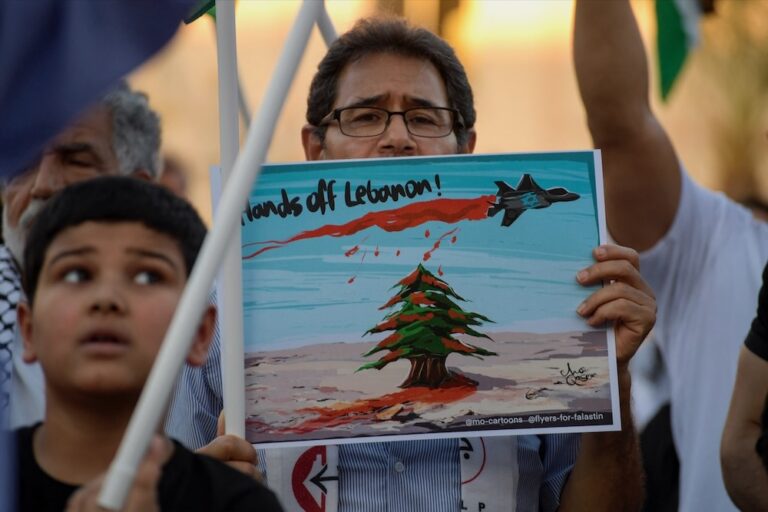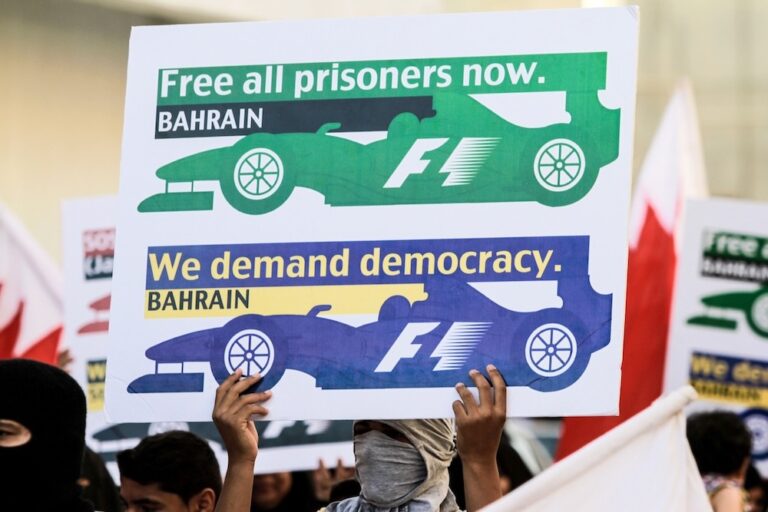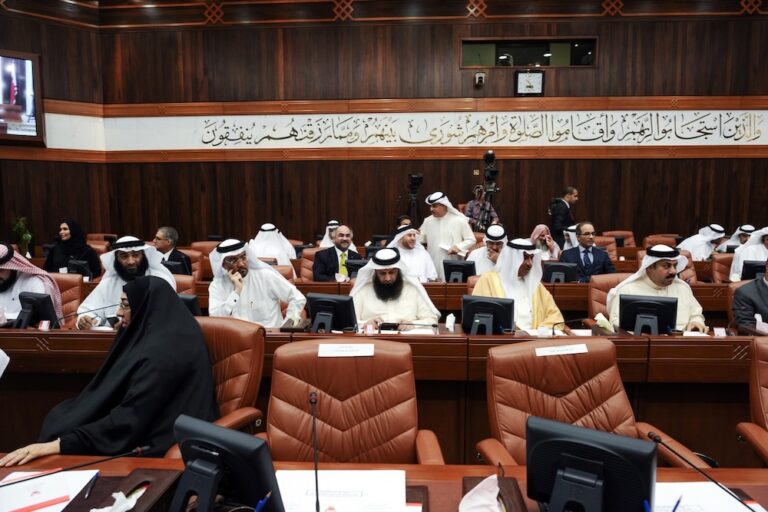On Friday, 9 May 2014, several Bahraini individuals received summons to visit the Investigation Department’s office. Those summoned have all lost family members due to the Bahraini security forces' use of excessibe force when suppressing peaceful demonstrations.
The Bahrain Centre for Human Rights (BCHR) expresses its concern at the Bahraini authorities’ continuing acts of retaliation against the families of victims of extra-judicial killings.
On Friday, 9 May 2014, several victims’ families received summons to visit the Investigation Department’s office on 12 May 2014. Those summoned include: Abulhadi Mushaima, the father of the late Ali Mushaima; Makky Abu Taki, father of the late Mahmoud Abu Taki; the husband of the late Ms. Asma Hussein; Jassim Al-Asfour, father of the late Yassin Al-Asfour; and also the activist Mahmoud Riyadh.
Those who were summoned to the Investigation Department have lost family members due to the Bahraini security forces’ use of excessive force when suppressing peaceful demonstrations and their collective punishment of villages.
The Investigation Department demanded that the bereaved refrain from participating in the daily local demonstrations that for call for democracy, those responsible for the deaths of their loved ones to be held accountable, and for the right to self-determination in choosing how the country is governed. At the conclusion of the interrogation, the Investigation Department also demanded the bereaved sign a pledge never to participate in such marches and demonstrations again.
It is important to note that this is not the first time that most of those mentioned above have received such summons, and that they have found themselves to be vulnerable to repeated acts of retaliation on the part of the authorities.
Abdulhadi Mushaima was previously arrested in the early hours of the morning of 22 August 2013, after the authorities raided his home without legal permission.
He remained in custody until his release on 29 August 2013. On 10 November 2010, his wife, the mother of the late Ali Mushaima, was arrested when she attempted to travel to Iran. Security forces claimed to have an arrest warrant, but were not able to clarify as to whether this was really the case. Similarly, Abdulhadi Mushaima was temporarily detained after an alleged verbal altercation with the police. His son, the late Ali Mushaima, was the first to fall on 14 February 2011, when he received a shotgun blast in the back from close range from the security forces. The policeman responsible for this was sentenced to seven years in prison, but the sentence was reduced to three years on appeal when the court of appeals accepted that Ali Mushaima had been shot inadvertently.
Makky Abu Taki was arrested on 26 November 2013, after being summoned to the police station at Al-Ni’am. The following day, he was interrogated at the Public Prosecutor’s office and was remanded in custody pending further investigation of charges of unlawful assembly and inciting hatred against the regime. In a telephone call to his family, Abu Taki stated that he was subjected to ill-treatment, beatings and insults from the prison officers. His family reported that the management of Dry Docks (Al-Howdh Al-Jaaf) prison refused to allow them to see Makky Abu Taki without a specific reason.
He remained in detention until his release on 9 January 2014. Makky Abu Taki’s son, 23-year-old Mahmood Abu Taki, was killed by gunshot wounds during the deadly dawn raid on the Pearl Roundabout on 17 February 2011, also known as “Bloody Thursday”. To date, the Interior Ministry has failed to investigate this case despite a proclamation two years ago demanding that they do so.
In BCHR’s view, the sovereign power in Bahrain is evading its public responsibilities through these actions by contributing to the spread of a policy of impunity.
This extends to the undertaking of acts of retaliation against the families of the victims of the state’s use of excessive force and to the protection of the victims’ executioners. Through systematic acts of retaliation against the families of victims of extra-judicial killings, the authorities seek to dissuade victims’ families from demanding accountability for the killers of their loved ones.
The Interior Ministry thus traps the families into a vicious circle of on-going summons and detention, on account of the families’ activism and calls for the prosecution of those responsible for the murders of their children. In a further act of intimidation and restriction of fundamental freedoms, the Interior Ministry then forces them to sign pledges to refrain from participation in further demonstrations. This is in violation of international treaties regarding freedom of expression, in particular Article 21 of the International Covenant on Civil and Political Rights, which states:
The right of peaceful assembly shall be recognized. No restrictions may be placed on the exercise of this right other than those imposed in conformity with the law and which are necessary in a democratic society in the interests of national security or public safety, public order, the protection of public health or morals or the protection of the rights and freedoms of others.
The Bahrain Centre for Human Rights calls on the United States of America, the United Kingdom, the United Nations, and all allies to the Bahraini government to pressure the authorities in Bahrain to:
- Stop acts of retaliation against activist families and the families of victims of extra-judicial killings;
- Stop acts of extortion and intimidation aimed at forcing victims’ families to waive their rights to call to account those responsible for the killing of their loved ones;
- End the systematic policy of impunity for human rights violators;
- Hold accountable all those involved in abuses, torture or murder, in particular high-ranking people in supervisory or command positions;
- Proceed immediately to conduct an impartial and independent investigations into incidents of deliberate killing, and the police’s use of excessive force against other victims.


